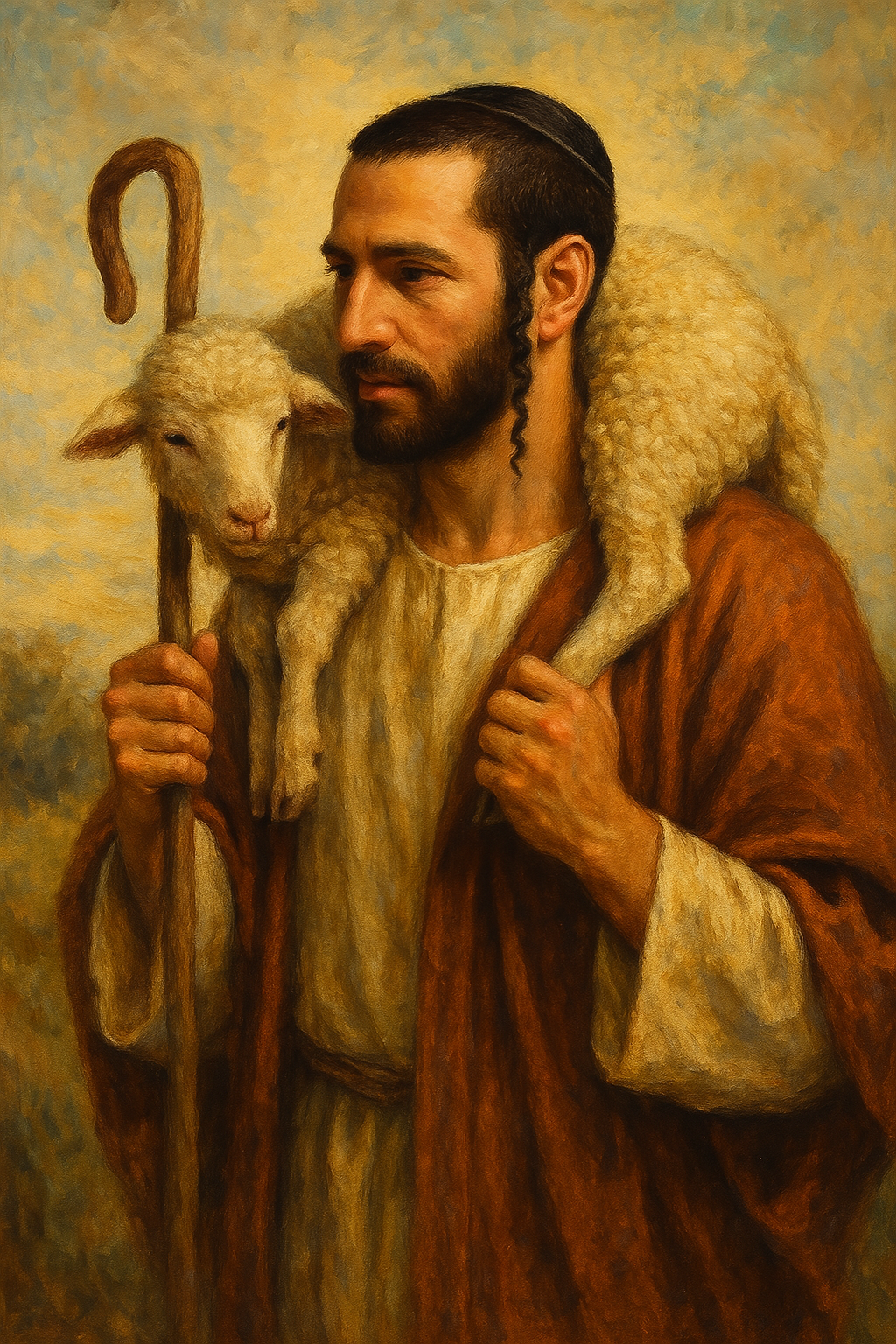Faith and Faithfulness

The Substance of What is Unseen: Faith in Light of Prophetic Certainty
"Now faith is the substance of things hoped for, the evidence of things not seen."
— Hebrews 11:1
Faith is not fantasy. It is not blind optimism. It is not belief in spite of the facts. Faith is a response to the revealed character of God—a covenantal trust rooted in the unshakable reality that what God has said, He will do. It is the alignment of the human heart and mind with divine certainty, even when the object of that certainty lies beyond sight. Faith does not negate reason—it fulfills it.
The Word of God calls us to faith because God has proven Himself. He has not asked for our blind trust—He has earned our confident allegiance. This is what distinguishes biblical faith from the empty credulity the world offers. It is not a leap into the dark—it is a step into the light, following the footprints of God's faithfulness through time, prophecy, power, and covenant.
God's Fulfillment of Prophecy: The Foundation of Faith
From the Garden of Eden to the cross of Calvary, and from Babylon to Jerusalem, the Word of God has foretold every major movement of redemptive history. The prophets did not speak in riddles—they spoke in exact timelines, patterns, and promises. The birth of Jesus in Bethlehem, His rejection, death, and resurrection—all were foretold centuries beforehand.
"I am God, and there is none like me, declaring the end from the beginning... saying, 'My counsel shall stand, and I will accomplish all my purpose.'"
— Isaiah 46:9–10
The mathematical precision we've observed in biblical prophecy—with odds of 1 in 2×10^33 against random chance—reveals a divine mind orchestrating history with perfect foresight. The 69 Weeks prophecy fulfilled with 99.5% accuracy in Christ's first coming gives us unwavering confidence in the prophetic timeline ahead. Faith, therefore, is not wishful thinking—it is rooted in the record of God's reliability. He has already proven that He speaks and fulfills.
God as Father: The Personal Dimension of Faith
While prophecy provides the framework, our personal relationship with God as Father gives faith its deepest meaning. Jesus revealed God not just as Creator or Judge, but as Father—Abba—with whom we can have intimate communion.
"For you did not receive the spirit of slavery to fall back into fear, but you have received the Spirit of adoption as sons, by whom we cry, 'Abba! Father!'"
— Romans 8:15
This revelation transforms how we approach God. We come not as distant subjects, but as beloved children, with Jesus' own privileges of access. As our Father, God's care extends beyond the grand prophetic timeline to our daily lives:
"If you then, who are evil, know how to give good gifts to your children, how much more will your Father who is in heaven give good things to those who ask him!"
— Matthew 7:11
Faith in God as Father means we can pray with confidence, knowing He has both the power and the desire to care for us, regardless of where we stand in the prophetic timeline.
God as Covenant Keeper: The Assurance of Faith
Throughout Scripture, God binds Himself to humanity through covenants—not because He has to, but because He desires relationship. Abraham believed God, and it was credited to him as righteousness—not because of perfect obedience, but because of trust in God's promise. That same covenantal trust is the heartbeat of biblical faith.
"Know therefore that the LORD your God is God, the faithful God who keeps covenant and steadfast love with those who love him... to a thousand generations."
— Deuteronomy 7:9
The covenant of Christ's blood is the ultimate assurance of God's faithfulness. In Jesus, every promise of God is "Yes and Amen" (2 Cor. 1:20). Faith, then, is not about believing hard enough—it's about believing the right One. It is not just belief in a future event—it is trust in the Covenant-Maker, who has bound Himself to us in love and in truth.
Faith and Faithfulness: The Inseparable Bond
Biblical faith cannot be separated from faithfulness. The Hebrew word for faith (אֱמוּנָה/emunah) carries the dual meaning of both belief and fidelity. True faith is never passive intellectual assent but active covenant participation. It is both trust and trustworthiness, both receiving and responding.
"You see that a person is justified by works and not by faith alone... For as the body apart from the spirit is dead, so also faith apart from works is dead."
— James 2:24, 26
The Covenant Response
When God establishes a covenant, He always outlines both His commitments and our responsibilities. From Eden to Sinai to Calvary, God's covenants involve mutual—though not equal—obligations. Our faithfulness is not the basis of our salvation but the evidence of its reality.
"If you love me, you will keep my commandments."
— John 14:15
This covenant response flows not from legalistic obligation but from grateful love. We serve not to earn God's favor but because we have already received it in Christ. Our faithfulness is the reciprocation of His prior faithfulness to us.
Walking in Covenant
To trust God is to walk in His covenant ways. The prophetic precision we've witnessed in the prophetic calendar doesn't merely inform our understanding—it should transform our living. As we see God's faithfulness to His prophetic word, we're called to demonstrate faithfulness to His moral word.
"He has told you, O man, what is good; and what does the LORD require of you but to do justice, and to love kindness, and to walk humbly with your God?"
— Micah 6:8
In an age of accelerating prophetic fulfillment, God calls for accelerating moral faithfulness. The proximity of Christ's return doesn't diminish ethical responsibility—it heightens it:
"Since all these things are thus to be dissolved, what sort of people ought you to be in lives of holiness and godliness, waiting for and hastening the coming of the day of God..."
— 2 Peter 3:11-12
Prophetic Understanding and Moral Response
The remarkable mathematical precision of prophecy isn't given merely to satisfy our curiosity but to guide our conduct. Seeing the divine scaffolding of reality should prompt us to align our lives with God's purposes. Knowledge of prophetic times carries moral responsibility:
"To whom much was given, of him much will be required."
— Luke 12:48
Those who understand the times have a greater obligation to live faithfully within them. The convergence of prophetic fulfillment we're witnessing calls for a convergence of faith and faithfulness in our lives.
Service as Reciprocation
Our faithful service to God is the response to His prior service to us. Jesus, who rules all history according to the Divine timeline, first came "not to be served but to serve, and to give his life as a ransom for many" (Mark 10:45). Our service is the natural overflow of receiving His.
"We love because he first loved us."
— 1 John 4:19
This reciprocal relationship manifests in three dimensions:
- Vertical Faithfulness - Worship, prayer, and personal holiness directed toward God
- Horizontal Faithfulness - Love, justice, and mercy extended to others
- Internal Faithfulness - Stewardship of our gifts, time, and resources for God's purposes
True faith embraces all three dimensions, recognizing that God's prophetic purposes include not only future events but present transformation.
Approaching God Through Christ: The Practice of Faith
Understanding God as Father and Covenant Keeper transforms how we approach Him in prayer and worship. We come not in our own name or merit, but in Christ's—robed in His righteousness and accepted in the Beloved (Ephesians 1:6).
"Let us then with confidence draw near to the throne of grace, that we may receive mercy and find grace to help in time of need."
— Hebrews 4:16
This approach to God through Christ provides several practical dimensions for enhancing our faith:
1. Bold Access in Prayer
Because of Christ's finished work, we have direct access to God the Father. Our prayers are not distant petitions to an indifferent deity but intimate conversations with our Father. The veil has been torn, and we can approach with confidence, knowing we are fully accepted in Christ.
"In him and through faith in him we may approach God with freedom and confidence."
— Ephesians 3:12
2. Rest in Divine Identity
Understanding our position in Christ frees us from performance-based religion. Our standing before God is not based on our merit but on Christ's perfect righteousness imputed to us. This allows us to live from a place of acceptance rather than striving for acceptance.
"Therefore, there is now no condemnation for those who are in Christ Jesus."
— Romans 8:1
3. Certainty in Prophetic Times
As we watch the prophetic timeline unfold with mathematical precision, we can face uncertainty with steady hearts. We know not only that God has planned the future but that He holds us securely within that future.
"For I am convinced that neither death nor life... nor anything else in all creation, will be able to separate us from the love of God in Christ Jesus our Lord."
— Romans 8:38-39
4. Faith That Works Through Love
True faith in God as Father and Covenant Keeper naturally expresses itself in love—both for God and for others. Faith is not merely intellectual assent to prophetic timelines; it transforms our character to reflect the God we trust.
"For in Christ Jesus neither circumcision nor uncircumcision has any value. The only thing that counts is faith expressing itself through love."
— Galatians 5:6
The Unchanging Nature of God's Character
God is not fickle. He is not like man that He should lie or change His mind. The constancy of His character is the anchor of our faith. We do not trust an arbitrary deity—we trust the God who revealed Himself to Moses as "I AM" (Exodus 3:14)—eternally present, self-existent, always consistent.
"Jesus Christ is the same yesterday, today, and forever."
— Hebrews 13:8
Faith lives not only in what God has done, but in who God is. His love does not fluctuate. His justice is never compromised. His mercy is new every morning. He does not fail. He does not forget. Because God does not change, our faith can rest—confidently and peacefully, even as we navigate the turbulent waters of Seal 4 and approach the culmination of this age.
Faith in Action: The Faithful Response to Prophetic Understanding
In light of the prophetic calendar's extraordinary precision, our response must go beyond intellectual fascination to covenantal faithfulness. As we discern the divine scaffolding of prophetic reality, we're called to align our lives with God's unfolding purposes.
1. Watchfulness and Preparedness
Understanding the timeline's precision calls us to spiritual vigilance. Jesus repeatedly emphasized readiness as the appropriate response to prophetic knowledge:
"Therefore keep watch, because you do not know on what day your Lord will come... So you also must be ready, because the Son of Man will come at an hour when you do not expect him."
— Matthew 24:42, 44
This watchfulness isn't passive observation but active preparation—keeping our spiritual lamps filled with oil (Matthew 25:1-13) and investing our master's resources wisely (Matthew 25:14-30).
2. Bold Witness
As the prophetic timeline accelerates toward its culmination, our witness becomes increasingly urgent. Understanding the precision of God's timetable compels us to communicate its reality to others:
"But in your hearts revere Christ as Lord. Always be prepared to give an answer to everyone who asks you to give the reason for the hope that you have. But do this with gentleness and respect."
— 1 Peter 3:15
This witness isn't merely about future events but about present salvation through Christ, who fulfills all prophecy.
3. Covenant Community
As the Day approaches, faithful believers draw together rather than isolate:
"And let us consider how we may spur one another on toward love and good deeds, not giving up meeting together, as some are in the habit of doing, but encouraging one another—and all the more as you see the Day approaching."
— Hebrews 10:24-25
The community of faith becomes increasingly vital as prophetic fulfillment accelerates. Together we strengthen each other's faith and faithfulness.
Conclusion: Faith in Light of Prophetic Certainty
As we stand before the remarkable mathematical precision of God's prophetic timeline, our faith is not merely intellectual agreement but whole-hearted trust expressed through covenant faithfulness. True faith embraces both trust in God's promises and obedience to His commands. It receives grace and responds with gratitude demonstrated in action.
The prophetic calendar reveals not just a prophetic framework but the very scaffolding of reality—the divine architecture upon which history unfolds. Yet this grand cosmic drama never overshadows God's personal care for each of His children, nor does it diminish our responsibility to live as faithful covenant partners.
As the days darken and prophecy accelerates toward its fulfillment, our faith expresses itself in faithful living—watching, witnessing, and walking in God's ways. We trust the God who speaks, acts, remembers, and redeems. And we walk forward in confidence—not because we see everything, but because we know the One who does, and we seek to honor Him in all our ways.
"The just shall live by faith."
— Habakkuk 2:4, Romans 1:17
This faith—this emunah—is both conviction and conduct, both belief and behavior. And soon, as the prophetic timeline reaches its culmination, faith will become sight, and faithfulness will receive its reward.





Comments ()